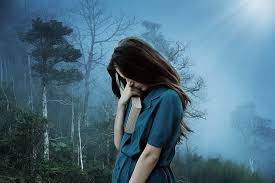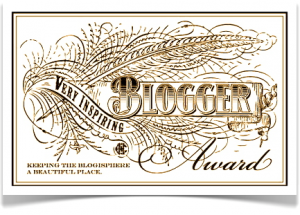Please note: This piece was first published on PsychCentral on August 1,2020

The other week, my husband and I were driving home after visiting a beloved family member who is struggling with the excruciating pain and to-the-bone weariness of cancer. As our car lugged down the highway, I thought about the ongoing cruelty of our world: the ravages of disease and war, the current pandemic, the never-ending inhumanity, inequality, and brutality, as well as the general disregard to our earth and the innocent creatures who are clinging to survive on it. (And, yes, I do realize that I’m just as guilty as the masses in spewing out pollution by the simple fact that I drive a car). I held back tears, and then took a deep breath as I told myself I was spiraling (which I’m sure you can tell from the above train of thought, I’m apt to do when facing a personal crisis).
And then it happened. A horribly common occurrence (according to a 2010 article in Psychology Today, it takes place more than one million times a day on roads in the United States alone). An innocent animal was plowed down without a thought. My husband had managed to swerve our car around the poor bird with a willowy neck (who might have been a Pintailed Duck) as the fledging froze between lanes in utter confusion and wide-eyed fear at the mayhem of 65-mile-per-hour metal beasts bearing down on him. Then… in the review mirror, my husband saw that the driver behind us crushed him without pause — and what looked like intention.
I lost it. I utterly lost it. All the sadness of our world seemed to lodge inside my chest. I sobbed so hard that I could hardly talk afterward. If there’s such thing as a mini nervous breakdown, I think I had one. I hit such an emotional low, that I figured if I got COVID-19 — which I’ve been doing everything in my power not to get — it wouldn’t be so bad if one more human was knocked off the face of the planet. Yet, slowly but surely, I was able to collect myself, was able to hope for hope for humanity—no matter how faint, no matter how far-off it may be.
I realize that I’m not alone with both my personal and collective despair — and I know, of course, how very lucky I am compared to a great number of people. I also bet that most everyone feels a sense of loss and disheartenment right now, especially those people who have lost loved ones (whether it be due to the virus, other health or mental conditions, or to the horrific plague of prejudice). So, how do we carry forth in a world that is breaking our hearts?
One of the first steps to take is to simply acknowledge that it’s not all up to you. A single person can’t fix all the ills on the earth (unless you’re some kind of saint with super powers I haven’t heard of yet). But… we can all take action, whether that means using our voices (and/or pens) to speak out for justice, volunteering for various causes, supporting clean energy, or simply being there for friends and family. Every day, no matter how much pain we may be in, we can still do at least one small thing to help. There’s power in not just doing this — but in simply knowing it.
It’s also important to acknowledge our feelings. Way too often, we try to push down our emotions, telling ourselves that we shouldn’t feel sad, depressed, anxious, etc. because so many other people have it worse. And while it’s important to recognize all the things we have to be grateful for, shoving down our feelings doesn’t help anyone and may very likely make those of us who bottle them up even more sad, depressed, or anxious in the long run. So, allow yourself to feel your feelings, share them with a trusted friend or family member, and realize, too, that feelings don’t have to be permanent fixtures in our emotional landscapes. We can deal with despair, and later can also celebrate joy—as well as all the other jumble of emotions in between.
Last but not least, try to tap into whatever makes you feel as if there’s something bigger than yourself. Something that provides an inner sense of calm, strength and awe, whether it be God, a connectedness to nature, the marvels of science, or simply hope. We can all use a little hope.
Author Bio: Author and speaker Tracy Shawn lives and writes on the Central Coast of California. Her debut novel, “The Grace of Crows” (Cherokee McGhee, 2013),won awards for indie fiction, including the 2013 Jack Eadon Award for Best Book in Contemporary Drama and Second Place for General Fiction from Reader Views. Tracy’s short stories have appeared in Literary Brushstrokes, Psychology Tomorrow Magazine, and most recently, Steel House Review. She’s written numerous articles for print and online publications and is a frequent contributor to psychcentral.com. She has currently finished her second novel.
